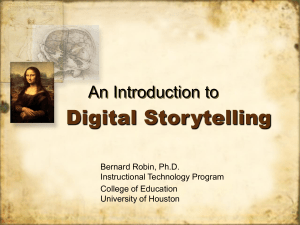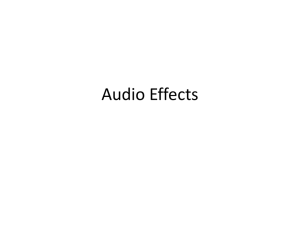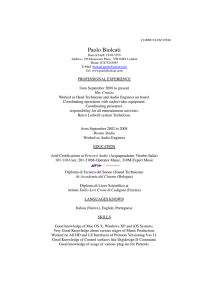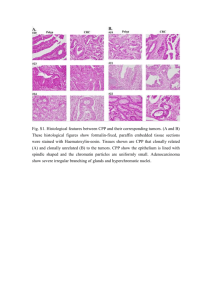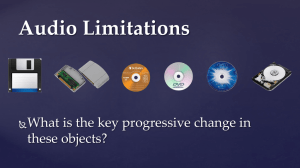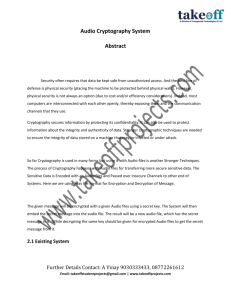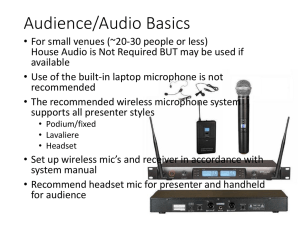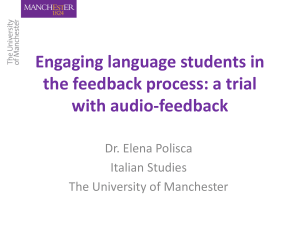Presentation 3 - Computer Science
advertisement
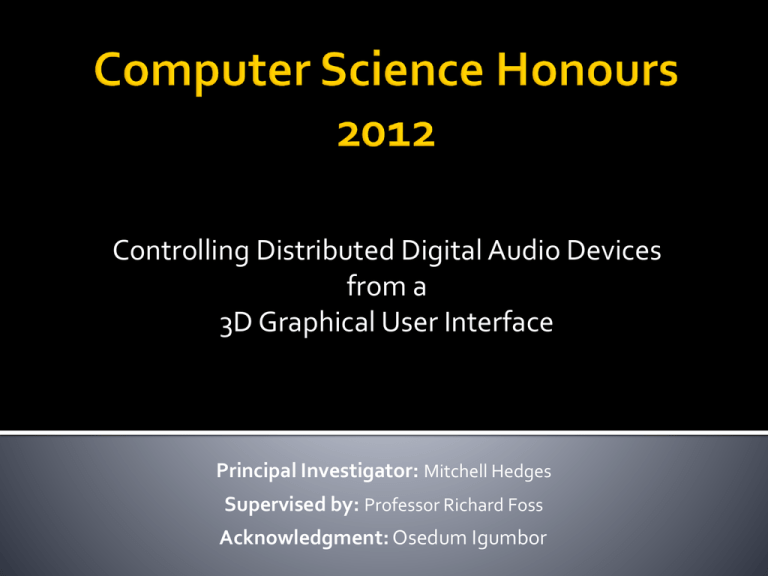
Controlling Distributed Digital Audio Devices from a 3D Graphical User Interface Principal Investigator: Mitchell Hedges Supervised by: Professor Richard Foss Acknowledgment: Osedum Igumbor The Motivation The Overview The Approach The Design The Demonstration The Future The Questions Venues using distributed audio moving from conventional to digital Cost Weight Availability In-depth study of current sound control capabilities Harman System Architect Biamp Systems’ daVinci/Tesira Moving from 2D “blueprint” layout to 3D “first person” interface User friendly “Real life” interaction Testing capabilities of Google Sketchup Testing the quality of service / sound Controlling distributed audio Simple control from a 3D interface Layer 2 and 3 networking 3 – Sockets between Ruby and Visual C++ 2 – IEEE 1722.1 AVDECC Protocol Discovering devices on an AVB network Making/Breaking audio streams between devices Object Oriented (OO) approach UML Diagrams Repetitive cycles Requirement specification Use cases Textual scenarios Class diagram / Object model Sequence diagrams Windows 7 OS Google Sketchup Notepad++ Microsoft Visual Studio AVDECC C++ libraries Include Libraries Socket Connection IP - 127.0.0.1 Port - 30456 Ruby (.rb) Visual C++ C++ (.cpp) 1722.1 AVDECC Specific style of messages sent through sockets Begin with the message “Source” and have 3 letter commands that follow. Separated with an underscore ‘_’ character Examples ▪ ▪ ▪ ▪ CPP_ENA_ATT_12:23:34:45:56:67:78:89 SKP_ACK_ENA_ATT_12:23:34:45:56:67:78:89 CPP_STR_CON SKP_STR_12:23:34:45:56:67:78:89 Audio/Video Discovery, Enumeration, Connection Management and Control Layer 2 3 Sub-protocols AVDECC Discovery Protocol (ADP) AVDECC Connection Management Protocol (ACMP) AVDECC Enumeration and Control Protocol (AECP) Scalable solution Testing QoS / QoA over large network ▪ Number of devices ▪ Distribution Windows memory leaks Breaking specific connections Enable device pinging Minimize VC++ interaction Maximize automation Implement AECP


